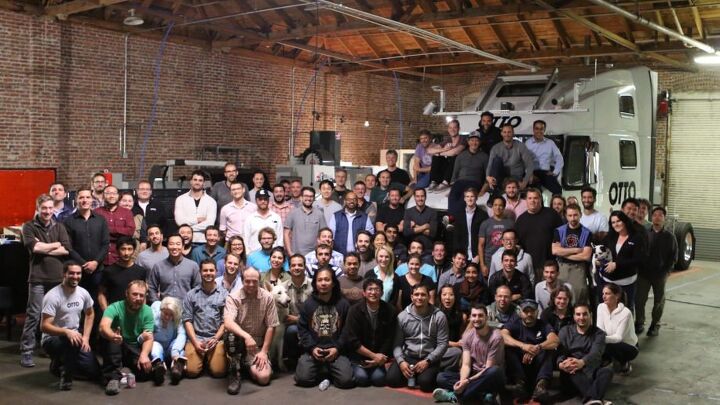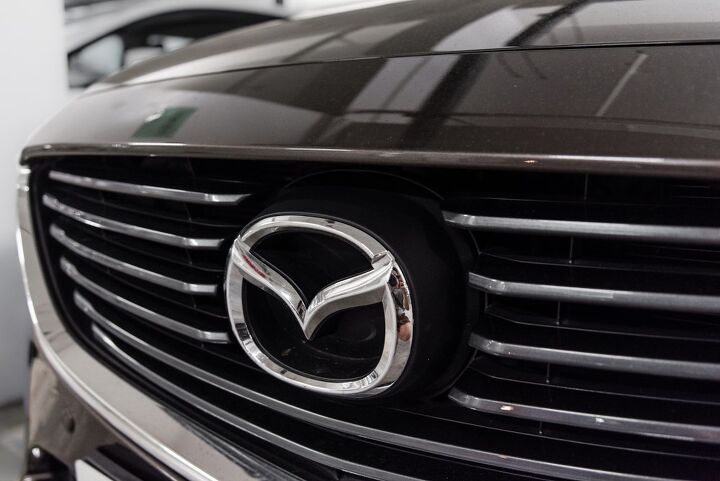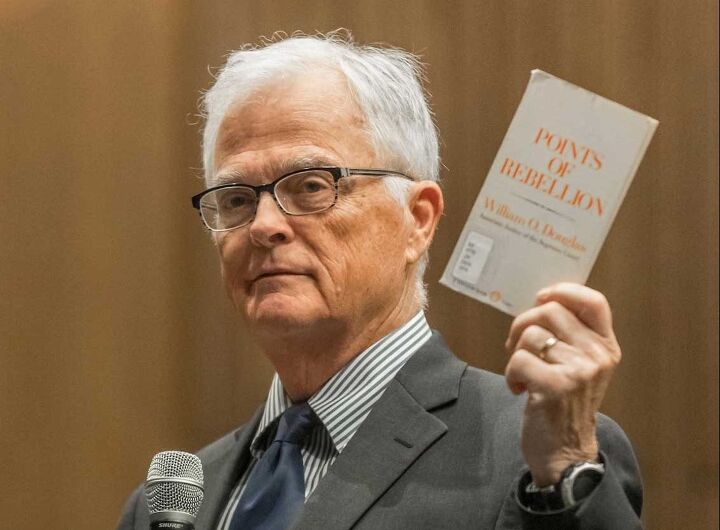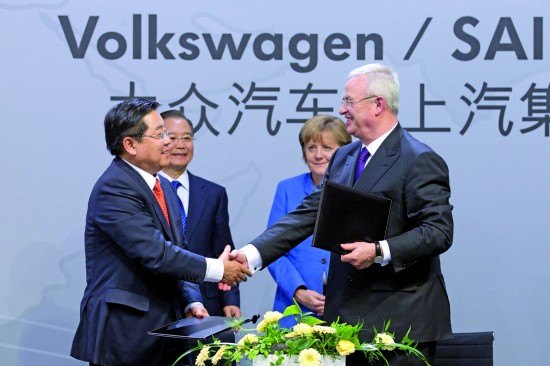#IntellectualProperty
Former Uber Self-driving Head Declares Bankruptcy
The former leader of Uber Technologies’ self-driving unit, Anthony Levandowski, filed for Chapter 11 bankruptcy on Wednesday, and it looks to have something to do with the $179 million he’s legally obliged to pay Google. A San Francisco County court decreed the same day that Anthony needs to pay out in order to settle his contract dispute.
In December, it was ruled that Levandowski and Lior Ron violated their agreement with Google when they left the company to start Otto — a rival autonomous vehicle company focused primarily on commercial trucking. Uber purchased Otto in 2017 but Google’s self-driving arm (which evolved into Waymo) claimed Levandowski violated intellectual property laws by stealing trade secrets it owned for Uber. While Ron decided to pay $9.7 million to settle with the tech firm, Anthony held out. He also faces a federal indictment over the alleged intellectual property violation.
Coupe De Grce? Mazda Files for 'MX-30' Name in Europe
Mazda has filed the term “MX-30” with the European Union Intellectual Property Office (EUIPO). While the filing incorporates broad automotive usage (including parts), the MX prefix has historically been applied to Mazda’s two-doored vehicles (including the MX-5 Miata). However, we’re urging you not to get your panties in a bunch and take a moment to seriously consider the odds.
You might be envisioning a return of the MX-6 or MX-3 coupe, but the fact that there is a 30 tacked onto the end could be indicative of ties to the new CX-30 — a crossover.
Trade War Watch: New Tariffs Coming Down the Pipe After China Pulls U-turn
The United States could impose a 25 percent import tariff on $200 billion worth of Chinese goods by the end of this week — the result of threats issued by President Donald Trump following a reported about-face on the part of Chinese officials negotiating a new trade deal with the U.S.
At the core of the dispute? Intellectual property rights, sources claim.
Uber's Contract With Notorious Employee Apparently Included Bad Behavior Clause
It would seem Waymo’s case against Uber is progressing at the latter’s expense. Anthony Levandowski, the former Uber employee at the center of the intellectual property theft, was apparently covered in writing for any legal action taken against for things like… fraud and stealing trade secrets.
The clause, which is literally outlined as “Pre-Signing Bad Acts” in the contract, was part of closed documents U.S. District Judge William Alsup previously assumed would be invaluable in progressing the case. Alphabet, which owns Waymo, accused Uber of being complicit in Levandowski’s alleged theft – suggesting the ride-sharing rival intentionally hired him in the hopes he would bring inside information acquired during his tenure at Google. It was a notion Alsup also seemed more than willing to entertain.
“It remains entirely possible that Uber knowingly left Levandowski free to keep that treasure trove of files as handy as he wished [provided he keep the data on his own personal devices], and that Uber willfully refused to tell Levandowski to return the treasure trove to its rightful owner,” the judge said back in May.
The Judge Hearing Waymo's Case Against Uber is a Monumental Badass
Uber has become quite an adept punching bag for journalists over the last few months. However, its unsavory actions only helped to hang itself in the corner of every garage across America while wearing an Everlast logo. At this point, it might as well say something nasty about everyone’s mother.
It isn’t just the press giving the ride-hailing and autonomous tech company a hard time, though. The judge overseeing its court case with Waymo over stolen intellectual property isn’t taking any bullshit from either company, or the litigant’s lawyers, and had some incredibly harsh words to share from behind the bench before adjourning court for the rest of April.
Supreme Court Case Could Make Patent Lawsuits Easier on Domestic Automakers
A Supreme Court ruling between two food companies may benefit the Detroit Three and its many domestic suppliers.
The case of TC Heartland LLC v. Kraft Foods Group Brands focused on where plaintiffs in an intellectual property or patent infringement dispute can file a lawsuit. Current U.S. law dictates that the plaintiff may file a patent infringement suit in any court district where the defendant does business. This has saturated the Eastern District of Texas with countless patent and I.P. lawsuits. Plaintiffs prefer the region because rural Texas juries are more likely to rule against big businesses and the district is known for expediting proceedings.
According to a January study by the Stanford Technology Law Review, only about 15 percent of cases heard in the court actually involved a patent invented within the district or had an accused party that had an office in the area. However, the Supreme Court is expected to put the kibosh on the practice by forcing plaintiffs to try cases near the defendant’s headquarters — meaning domestic automakers could have the home field advantage in future legal proceedings.
Versata Sues Ford Over IP Theft Linked To Configuration Software
Texas software company Versata is suing former partner Ford over claims the automaker stole code from its proprietary technology.
Section 1201 and Automotive DRM: The Future is Locked
This is the Renault Zoe. It’s like most EVs on the road, with its limited range, limited power, and limited usability.
Unlike the other EVs, however, the Zoe comes with DRM attached to its battery pack. In short: If you value your ability to drive the Zoe at all, then you will submit to a rental contract with the pack’s manufacturer. Should you fail to pay the rent or your lease term expires, Renault can and will turn your Zoe into an expensive, useless paperweight by preventing the pack’s ability to be recharged, consequences be damned.
Chinese Couple Found Guilty Of Stealing Crap From GM
A Detroit court found a former GM engineer and her husband guilty of conspiring to steal hybrid car trade secrets. Their lawyers unsuccessfully argued that there were no secrets to steal. Ed Niedermeyer had said that for years.
German Paper: "China Steals Volkswagen Patents"
A few months ago, Volkswagen extended its joint venture contract with Chinese partner FAW for another 25 years, with appropriate pomp and circumstance: Chinese Prime Minister Wen Jiabao and German Chancellor Angela Merkel witnessed the signature. Now, Volkswagen takes the unusual step of going semi-public with the theft of intellectual property. According to reports in German media, FAW has “systematically and repeatedly” stolen designs of important components such as engines and transmissions. Volkswagen’s hands are tied.
Chrysler Loses Court Battle Over "Imported From Detroit"
What's Keeping BYD From Coming To California? Patent Problems?
We have covered the Governator wooing not-so-gloriously-doing BYD to come to California, well, at least with a headquarter building. We were also interested to hear that BYD “is in talks with officials in Los Angeles to supply all-electric battery buses in the city.”
The Wall Street Journal revisited old investigative reporting glory and did some thorough digging into the matter. And here is what transpired, all as per the WSJ:
What's Wrong With That Picture: Besturn B70 Wins Top Chinese Design Award
And the winner is (left.)
China’s 11th Five-Year Plan (they still have one of those) encourages industrial design as one of the six key modern service sectors that will receive priority support from the central government.
One of these support measures was the creation of a government-sponsored patent award, which “ aims to boost the nation’s intellectual property strategy and accelerate creation of proprietary intellectual property,” as Gasgoo put it.
FAW’s Besturn B70 was the only design patent to win a gold medal at the 11th China Patent Awards in Beijing. There is just a small niggling problem:



























Recent Comments